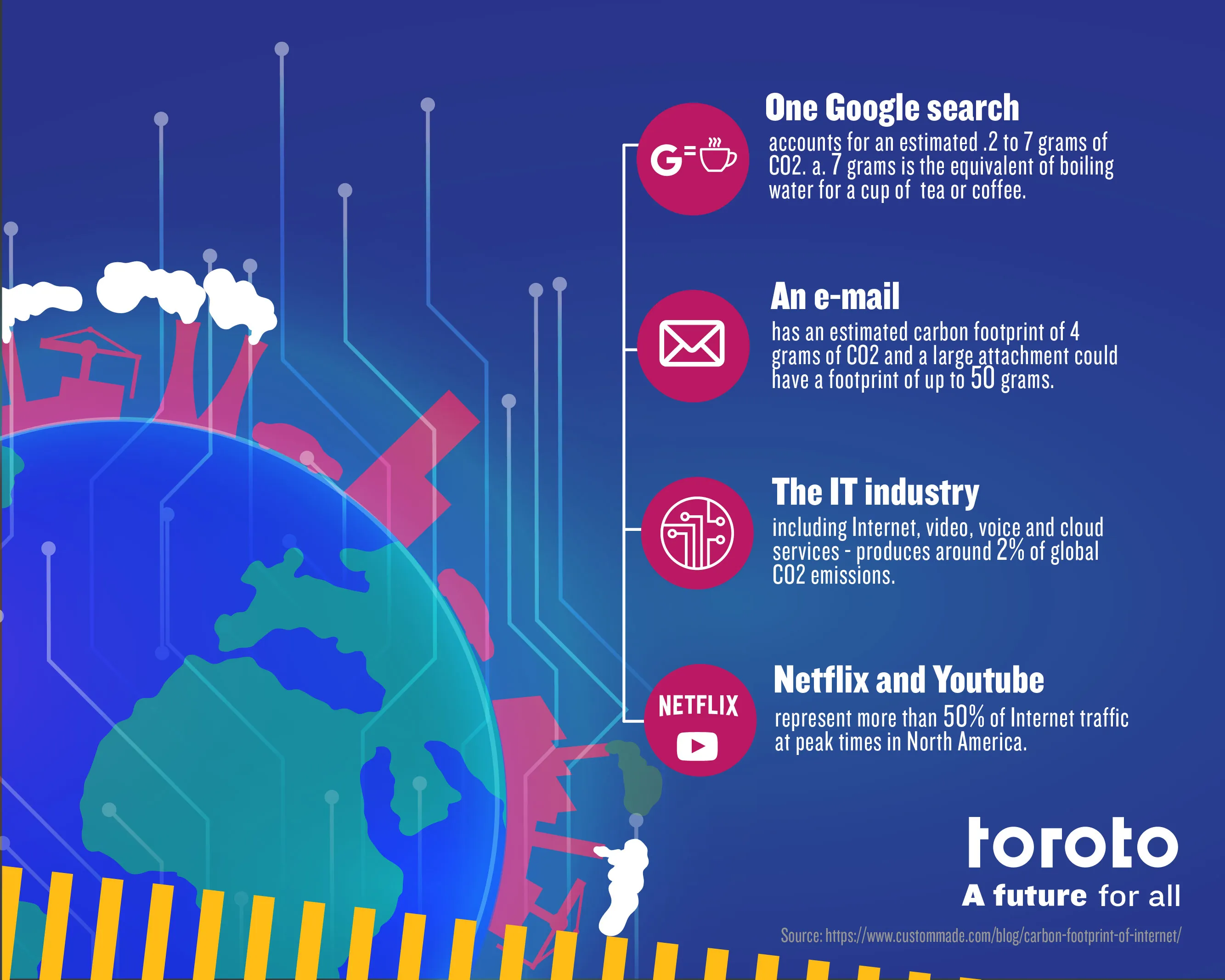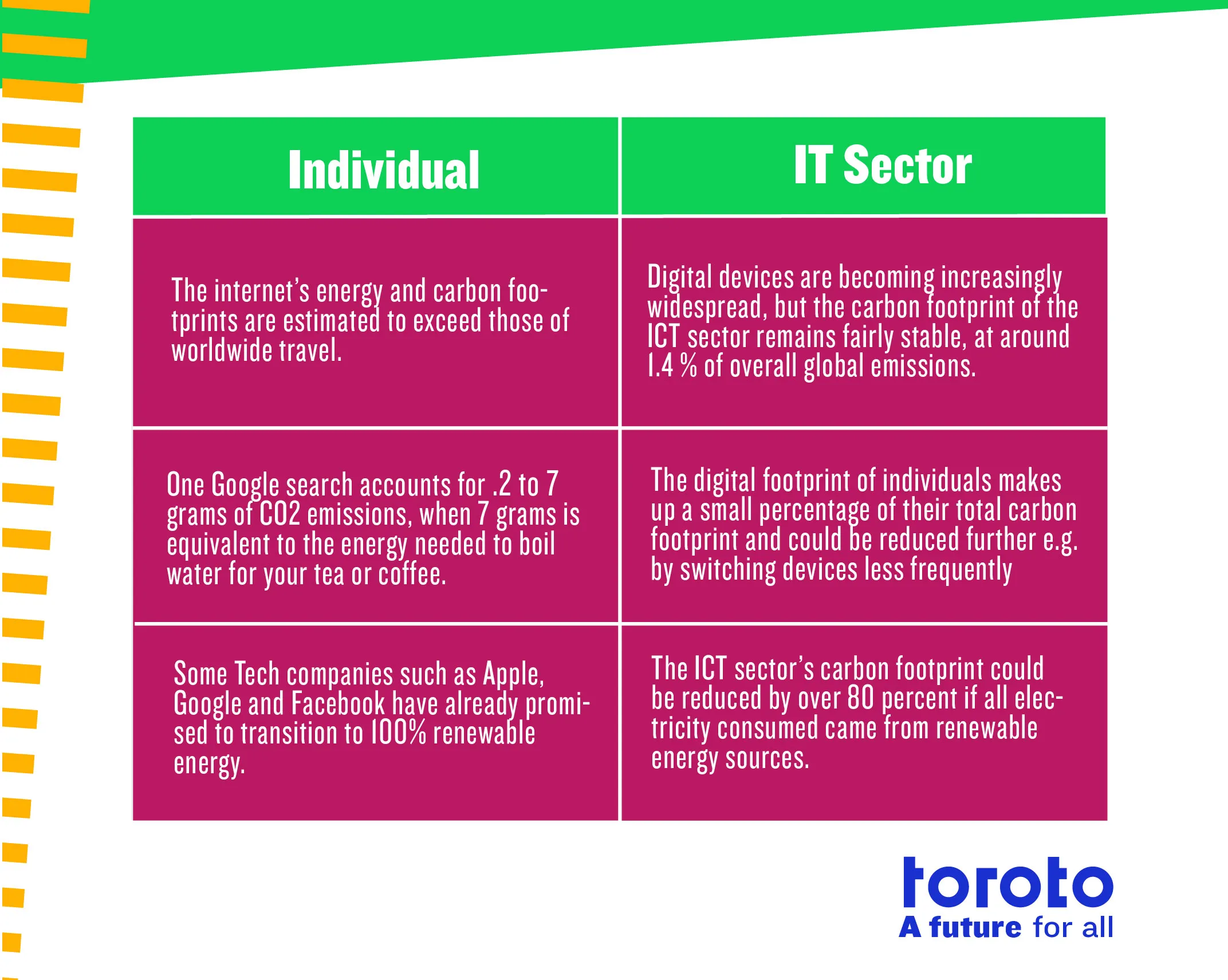Our Digital Carbon Footprint



Mexico City: Have you ever wondered how our digital carbon footprint has increased globally as a result of the COVID-19 crisis?
Staying home is difficult. We have lost our freedom to go to work, go to the gym, go to bars, movies, parks, museums, or to travel. We have lost our freedom to approach people without feeling fear.
So we are all resisting. We start working from home, we work out thanks to our phones or going up and down the stairs, we watch more television, we take naps, we cook and we talk on zoom.
But what happens if the World Wide Web goes down? Will we resist? Let's be realistic: no. We depend on this digital space to survive. So, yes, I bet our digital carbon footprint has increased exponentially since this crisis began (and historically as well).
The first question is: if each individual reduces their digital carbon footprint, will global greenhouse gas emissions be significantly reduced?
If you Google it, you'll find countless articles claiming that our individual digital carbon footprint has gone crazy (1) over the years and that we must change these patterns ourselves if we don't want the climate crisis to affect us more. (BBC, Reset, Mozilla)
You've probably already heard what we need to change: “Turn off your computer, disconnect your devices, end vampire energy consumption.” Here are four reasons why you should be concerned:

So are our individual choices enough to make a difference?
In 2017, Greenpeace (2) launched the #clickclean campaign to denounce technology companies that run on dirty fuels; Twitter, Netflix, HBO and SoundCloud were added to the blacklist to name a few.
But when comparing numbers that contrast individual responsibility versus what the Information Technology (IT) industry says... Guess what? The numbers don't match:

Here's a surprising report from Ericsson (3): contrary to popular belief, they argue (both in their online report and through SoundCloud) that the press is spreading “fake news” telling people that they are responsible for their excess digital carbon footprint.
“Have you ever worried about how your online activities impact the climate? According to this report, the true impact may be much smaller than you think.”
FALSE!
Then, just a month ago, Expert (4), a website builder, published a report with compelling graphics, asking individuals to change their habits.
But can we trust these numbers?
We would need to dig deeper to discover what's behind this futile debate between our shared individual and collective responsibility for our digital carbon footprints.
Whether we decide to change our individual behavior or ask the IT industry to raise its standards, we're in this together.
The truth is that the population continues to grow, so does Internet access and the digital universe is expanding rapidly.
Therefore, we need to rethink not only the time we spend on the GRID, but also the energy source that powers this system. How quickly can we move to a future that runs on 100% renewable energy?
That is the question.
Fuentes
1) Berners-Lee, Mike. “How bad are bananas? The Carbon Footprint of Everything”. Greystone Books, 2011.
2). Cook, Gary. “Clicking clean: who is winning the race to build a green Internet?”. Greenpeace, 2017.
3). “A quick guide to your digital carbon footprint”. Industry Lab/ Ericsson, 2020.
4). Monaghan, Maura. “The World's Digital Carbon Emissions Per Minute”. Website Builder Expert. April 6, 2020.
Monica Lafon is an independent environmental journalist. He obtained his degree in Journalism and Political Science from Concordia University and his master's degree in Environmental Policy from Sciences Po Paris.
Explore reflections, research and field learning from our work in ecosystem restoration.